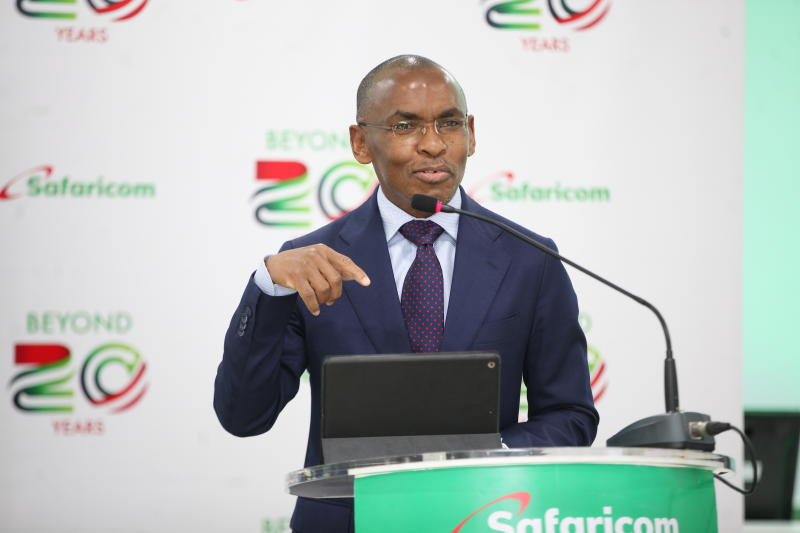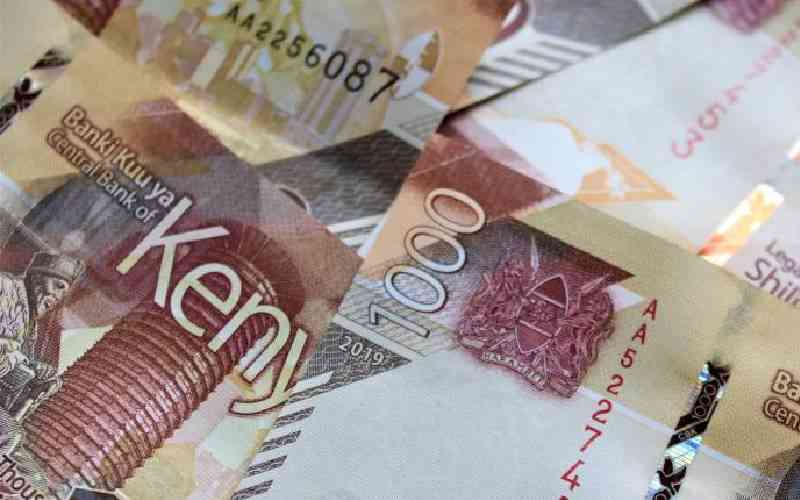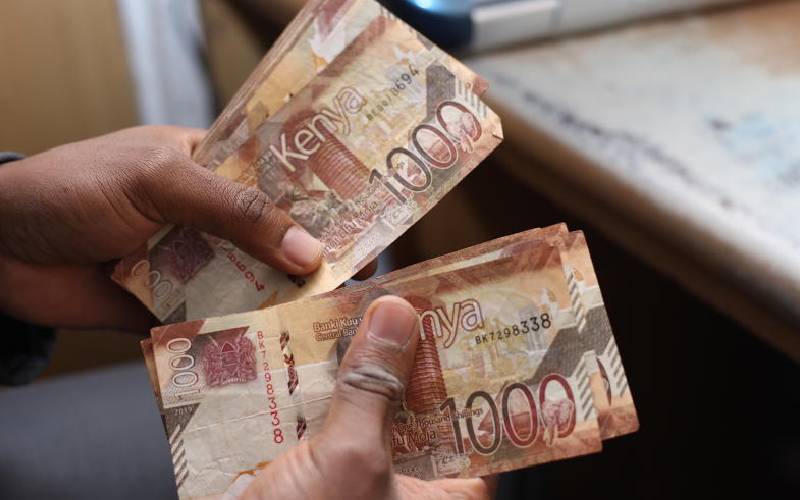
Safaricom has recorded Sh37 billion net profit in the first six months to September 2021 even as millions of Kenyans struggled with the aftershocks of the coronavirus pandemic.
Safaricom CEO Peter Ndegwa attributed the 12 per cent increase in after-tax profits, compared to the same period last year, to better earnings from M-Pesa and data usage.
“The pandemic dealt a major blow to the economy in 2020, but we are encouraged with the gradual recovery recorded across major sectors of the economy including agriculture, manufacturing and tourism sector,” said Mr Ndegwa.
But the spike in profitability was boosted by the decision to reverse some of the Covid-19 relief measures, which included waiving mobile money fees on transactions below Sh1,000.
“M-Pesa recorded strong performance, growing 45.8 per cent year-on-year following the return to charging beginning January 2021,” he said. “Total transaction value grew 51.5 per cent to Sh13.7 trillion while volumes grew 42 per cent to 7.3 billion.”
Ndegwa further said the growth in profits was boosted by increased velocity of M-Pesa transactions following the launch of the M-Pesa app earlier this year, as transactions by monthly active users grew to 18.1 from nine for each customer per month.
“This is attributed to increased activity in the eco-system with 67 per cent of total registered M-Pesa customers making up the one-month active M-Pesa customers,” stated Ndegwa.
Data from the company’s latest financial reports indicate the service revenue for the period under review grew 16.9 per cent to reach Sh138.4 billion mainly driven by revenue from M-Pesa and mobile data.
“Service revenue grew 16.9 per cent in the first half year of 2021/22 supported by strong execution, recovery in M-Pesa revenue following the return to charging on person-to-person and Lipa na M-Pesa transactions below Sh1,000, and improved consumer confidence and business activity in the economy,” said Ndegwa.
M-Pesa revenue grew 45.8 per cent to Sh52 billion mostly attributed to transfers and fintech solutions like betting and international money transfer.
Voice revenue went up 3.2 per cent to Sh41 billion, while earnings from short messages recorded an 18 per cent decline to Sh5.8 billion in the period under review.
Earlier this year, the company launched a revamped M-Pesa Super App with mini-apps that enable customers and businesses accomplish day-to-day tasks from shopping to accessing government services without having to download different apps for each.
M-Pesa Africa Managing Director Sitoyo Lopokoiyit said the app recorded four million downloads within the first months of launch.
“During the curfew period, we took time to make a lot of enhancements to it and the last one last weekend was very successful. Customers will begin seeing the benefits of the enhancements to the system,” he said.
Lopokoiyit further clarified the new terms and conditions on Fuliza service, which will come into effect on Sunday, are not new but have been part of the product since it was launched.
According to the company’s financial reports, revenue from Fuliza increased 32 per cent to Sh2.8 billion for the first six months of the 2021/22 financial year, while the value of disbursements stood at Sh242 billion over the same period.
The growth of Fuliza, however, seems to have come at the expense of the firm’s other mobile lending products M-Shwari and KCB M-Pesa.
Revenues from M-Shwari fell 10.4 per cent to Sh900 million while the value of loans disbursed fell 8.6 per cent to Sh43.4 billion.
One-month active M-Shwari customers declined 19 per cent to four million while the repayment versus disbursement rate rose to 63 per cent, up from 50 per cent last year.
KCB M-Pesa recorded a 30 per cent drop in revenues for the half-year to Sh300 million, while monthly active users fell from 3.6 million to 3.1 million.
Safaricom CEO said the company hopes to launch operations in Ethiopia next year even as the board of directors monitors the political situation in the country.
“We are looking forward to launching commercial operations as projected, while cognizant of the current evolving political conflict in Ethiopia, as we proceed with our plans adapting to and assessing the situation as it evolves,” he said.
In July, the company set up a local subsidiary, Safaricom Telecommunications Ethiopia PLC, to manage operations in the Horn of African nation.
The firm secured a Sh91 billion tender under a consortium that includes Vodacom Group Ltd, Vodafone Group PLC, GDC Group PLC and Sumitomo Corporation. Investor confidence, however, remains shaky following the ongoing conflict between the government and forces allied to the Tigray People’s Liberation Front.
Ndegwa said the company plans to inject Sh222 billion capital investment in Ethiopia over the next five years.
Safaricom hopes to roll out between 10,000 and 12,000 sites to support it’s network and is seeking to recruit 1,000 employees in the first year of operations, including 150 graduates.
“For now, our priority is safety and security of the small number of employees that had already joined the organisation,” said Ndegwa. “We hope for a fast and peaceful resolution to the current situation and we remain committed to taking telecommunications and digital services to the people of Ethiopia.”
 The Standard Group Plc is a multi-media organization with investments in media platforms spanning newspaper print
operations, television, radio broadcasting, digital and online services. The Standard Group is recognized as a
leading multi-media house in Kenya with a key influence in matters of national and international interest.
The Standard Group Plc is a multi-media organization with investments in media platforms spanning newspaper print
operations, television, radio broadcasting, digital and online services. The Standard Group is recognized as a
leading multi-media house in Kenya with a key influence in matters of national and international interest.











